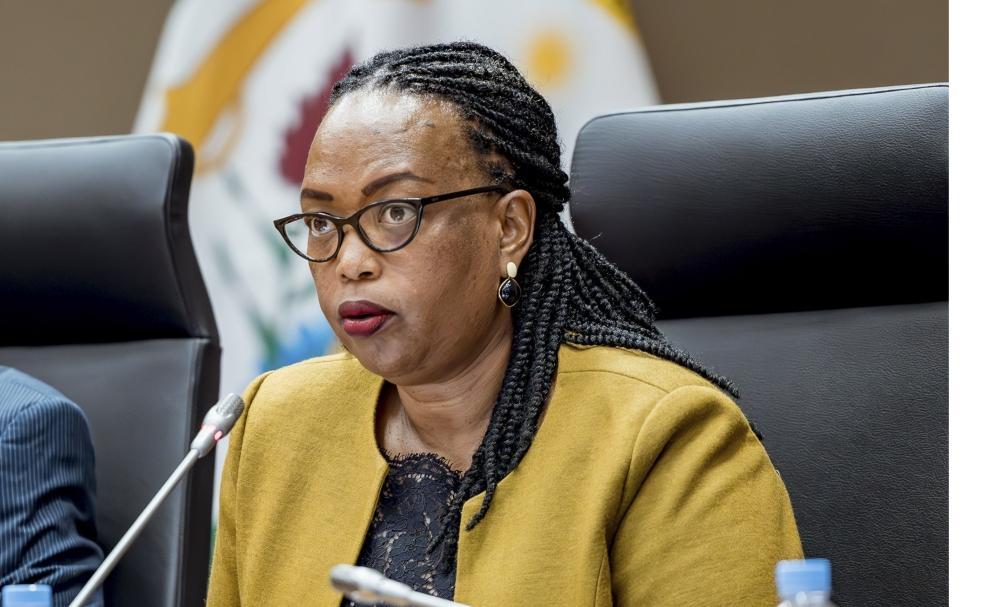Africa-Press – Rwanda. The National Commission for Human Rights released its annual report for the 2024/2025 fiscal year on October 15, highlighting progress, persisting gaps, and emerging trends in the protection and promotion of human rights across the country.
Here are some key points from the report:
1. Prison overcrowding has reduced
An inspection conducted in March 2025 to assess respect for prisoners’ rights found that overcrowding had fallen from 134.3 per cent in 2023/2024 to 110 per cent in 2024/2025. By August 31, Rwanda Correctional Service reported a further drop to 103.8 per cent.
2. Election processes respected human rights
During the 2024 presidential, senatorial, and parliamentary elections, the rights of voters, candidates, and observers were largely respected. However, the Commission urged the National Electoral Commission to improve its technology for voter transfers after some discrepancies were noted on voter lists.
3. Rights of people with disabilities are improving, but challenges remain
Inspections in 32 institutions showed that most rights of persons with disabilities, including access to health, education, and protection from abuse, were respected. Yet, some schools still lack teachers trained in special needs education.
The report also indicated that 63.6 per cent of private sector businesses do not have infrastructure that facilitates access for people with disabilities: 75.7 per cent of industries, 70.6 per cent of transport companies, 68.6 per cent of construction firms, 52 per cent of commercial businesses, and 49.5 per cent of tourism and hospitality establishments.
4. Refugee rights upheld despite aid cuts
In refugee camps, rights to movement, documentation, clean water, security, and justice were observed. Nevertheless, reductions in humanitarian aid have affected refugees’ welfare, as livelihood projects do not reach everyone.
The Commission urged the relevant authorities to illuminate the parts of Mahama Refugee Camp that lack electricity, expedite the construction of the road leading to the camp from the main paved road, and install lights along it, so that the security of those in the camp is better safeguarded.
5. Over 650 human rights complaints handled
The Commission followed up on 654 human rights violation cases, including 563 received in 2024/2025 and 91 that were still pending by the end of 2023/2024.
87.9 per cent of the cases were resolved, 4.1 per cent have been investigated but are not yet resolved; and 8 per cent are still under investigation. The leading categories included cases related to property rights (203 cases, 31 per cent), the right to justice (26.6 per cent), and children’s rights (12.8 per cent).
6. Mental health care institutions meet standards but face overcrowding
The commission found that some inmates develop mental health issues while in prison. They are examined, treated, given medication, and referred to district hospitals or Ndera Neuropsychiatric Centre when necessary.
Gitagata, Ngarama, and Nyamagabe rehabilitation centres were assessed for their ability to care for people with mental illness, substance dependence, disabilities, women, and children. Across Kigali Mental Health Referral Centre, Ndera and its branches, and Huye Isange Rehabilitation Center, there were 602 inpatients, including 218 women, and 12 children.
CARAES Butare was overcrowded at 140.5 per cent, with 167 inpatients for a capacity of 119.
Hospitals and elderly care homes were found to respect human dignity, privacy, and hygiene, with no cases of inhuman or degrading treatment reported.
7. Barriers to upholding labour rights and ensuring workplace health and safety
A lack of profound knowledge about labour law is a primary barrier, with 58.9 per cent of employees completely unaware of the laws that protect them. With 75 per cent of labour inspectors reporting a critical shortage of personnel, many districts have only one inspector for all local businesses.
Furthermore, there is widespread failure by employers to provide basic health and safety protections. Some 48 per cent of private companies do not supply essential personal protective equipment. This neglect, prevalent in sectors such as hospitality and construction, is compounded by weak enforcement, as penalties for non-compliance are lenient or inconsistently applied, giving employers little incentive to follow the law.
8. Overcrowding still linked to weak enforcement of alternatives to imprisonment
Despite the sharp decline in overcrowding, correctional facilities still reported 103.8 per cent of congestion as of August 31. The report links overcrowding to the limited use of non-custodial measures. Many accused are remanded in custody before trial, despite laws allowing alternatives.
The commission recommended proper enforcement of victim-offender mediation at the investigation stage and plea bargaining at the prosecution stage could significantly reduce congestion. Although thousands of cases have been resolved through these mechanisms, they remain underutilised, with pre-trial detention still the default approach.
9. Children living in prisons with their mothers need support
The Commission found that several prisons still accommodate children under the age of three who live with their detained mothers.
While the children are provided with food, medical care, and other essentials, the Commission called for more efforts to make such environments more child-friendly and to ensure the protection of their rights.
For More News And Analysis About Rwanda Follow Africa-Press






